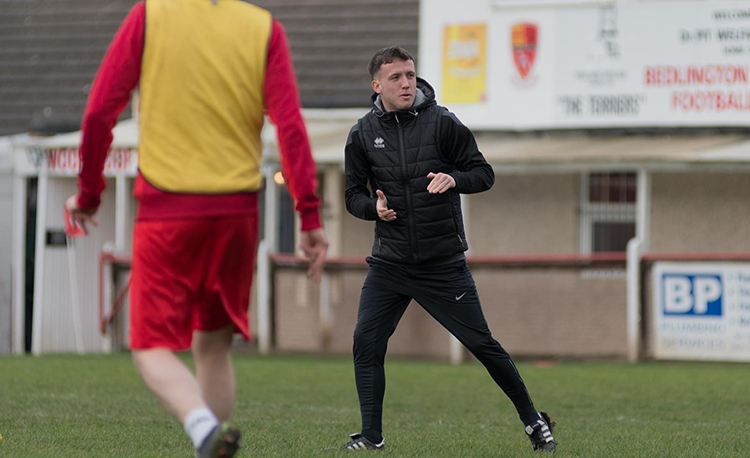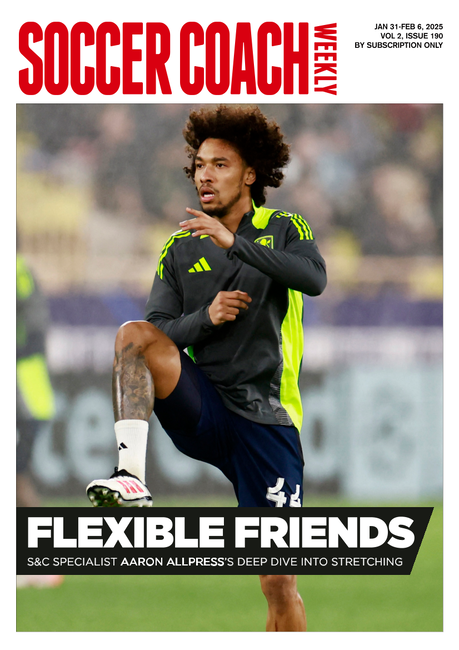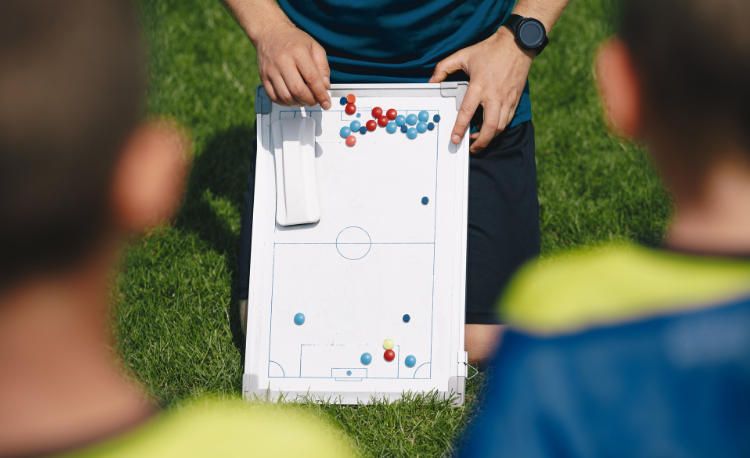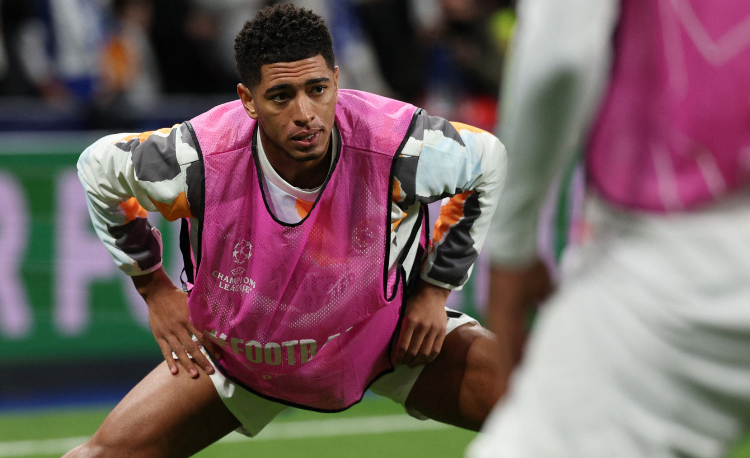Advice for moving from coaching youth soccer to coaching adults
When you have been a youth coach, stepping up to the senior game can feel very different, but the basic principles remain the same
Moving from coaching in youth soccer to coaching adults can be daunting.
Coaching is about understanding players as people first, which is very different at different ages. Then comes the tough bit of improving them as footballers.
In this column, I will talk about my personal experiences of transitioning from coaching youth players (ages 5-16) through to now coaching in men’s senior football.
Coaching football at any level poses multiple challenges, as we all know. But different age bands can present their own individual challenges.
Younger players will tend to listen and take on board any information fired their way. You can give instructions to most players in the youth ages without the responses of "why are we doing this?" or “this does not replicate a Saturday”.
Senior players may pose different challenges, some of which I have encountered myself as a young coach who has transitioned from youth to senior football.
"Senior players aren’t bothered about how old you are or how qualified you are..."
The biggest challenges I first initially faced about stepping up were the internal worries: “How will the lads take to me?", "Will they enjoy the sessions?", "Will they respect me as a coach?”.
The biggest thing I took away from my first encounters with senior players is they are all players who want to improve and aren’t bothered how old you are or what qualifications you have.
What they are bothered about is your personality, enthusiasm, and ability to connect with them on a personal level.
If we have all that in our delivery as coaches at any age, players will then begin to develop as footballers.
Another challenge I have encountered is players challenging you during a session - ’why are we doing this?’, ’how does this information help me?’.
The transition in detail as a senior team coach challenges you further than a youth coach, in my opinion.
The detail of your points must relate to how your team plays on weekends, and how the information helps develop them as players and individuals.
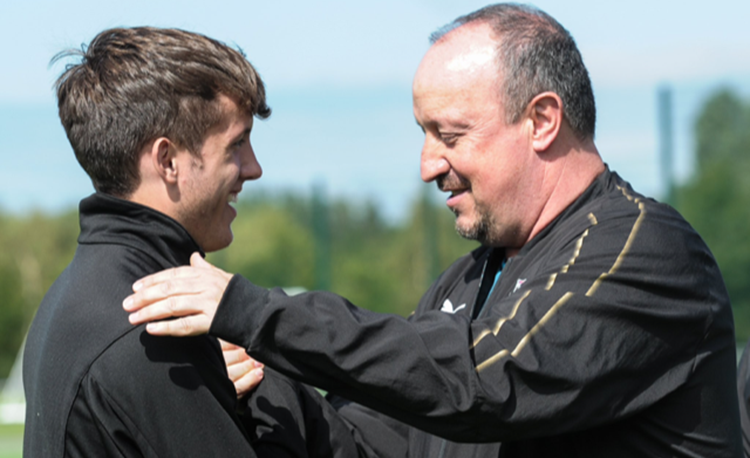
Players at senior level are also likely to tell you if they agree or disagree with your points. This will ultimately develop you as a person and coach.
I have, through my own personal experiences, developed two rules for overcoming challenges. These are:
1. Be open and honest: All players will see through it if you pretend to be otherwise.
2. High ball rolling time: Senior players I coach come to training straight from work. They want to be playing, and learning through play - as indeed do players in the youth age groups.
A support network is also crucial when transitioning from youth to senior football.
Most coaches in the younger age bands, at grassroots level particularly, will only have one or two members of staff, usually to help sort the many things beyond the players on the field.
Reflecting on my own personal experiences of the transition to the adult game, having a network of staff around you can be beneficial - not only to you but the players as well.
Even if you don’t have a support network made up of coaches, you can still create one. It may come in the form of senior players within the playing staff, supporters or even family members.
Below are some of my positive experiences of having a support network, both inside and outside a club...
1. Allows you to focus on your role: if you are not spreading yourself too thin, you can concentrate on your job. You are a coach, so focus on training.
"Players at senior level are likely to tell you if they agree or disagree with your points..."
2. Adds experience around you: I am 22 but I have good experience to lean on.
3. Allows you to talk to people in your field: In my case, I speak to coaches who transitioned across into senior football at a young age, gather their thoughts, share, reflect and reset.
4. Allows you to get player feedback: Your players are included in your support network. Ask them their thoughts.
The art of coaching younger players is often labelled “the creation of the experience and environment", which is right. I must add, alongside that, the ability to develop footballers along the way.
It is similar when coaching senior players. Yes, there may be slight tweaks, but the core fundamentals remain in place - be energetic, know what the players want and what they need, but also give them something they don’t already know.
The ability to change your coaching ’hat’, as you switch between age groups or go from youth to senior soccer, is a skill and something I try to do regularly, as I coach different age bands during my working week.
I understand this may be hard for some, but let’s say you are an U16s coach - could you find the odd hour to coach the U7s? What would you take away? What would the players have learned?
Anyone who does this, please DM me on Twitter as it would be great to hear your experiences. You can follow Charlie on Twitter: @bewscharlie
Related Files
Newsletter Sign Up
Coaches Testimonials

Gerald Kearney, Downtown Las Vegas Soccer Club

Paul Butler, Florida, USA

Rick Shields, Springboro, USA

Tony Green, Pierrefonds Titans, Quebec, Canada
Subscribe Today
Discover the simple way to become a more effective, more successful soccer coach
In a recent survey 89% of subscribers said Soccer Coach Weekly makes them more confident, 91% said Soccer Coach Weekly makes them a more effective coach and 93% said Soccer Coach Weekly makes them more inspired.
*includes 3 coaching manuals
Get Weekly Inspiration
All the latest techniques and approaches
Soccer Coach Weekly offers proven and easy to use soccer drills, coaching sessions, practice plans, small-sided games, warm-ups, training tips and advice.
We've been at the cutting edge of soccer coaching since we launched in 2007, creating resources for the grassroots youth coach, following best practice from around the world and insights from the professional game.
